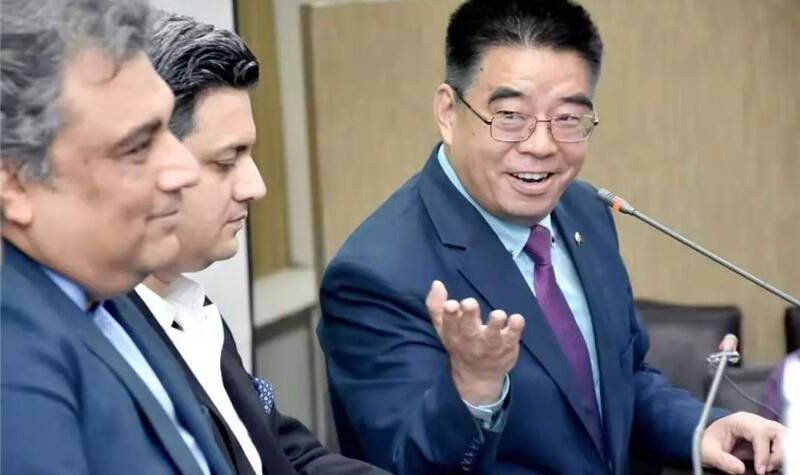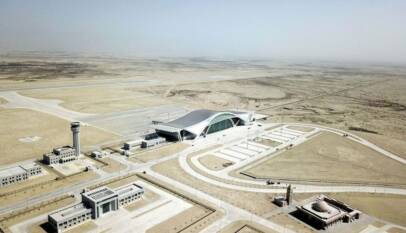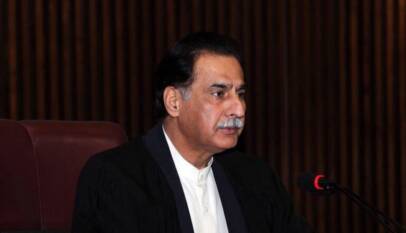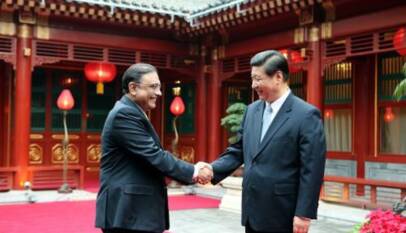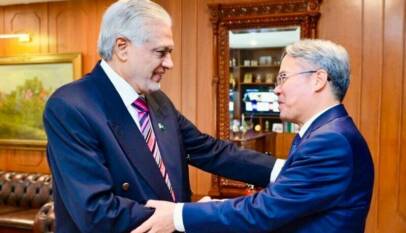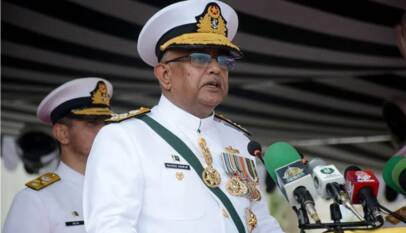Gwadar to be Biggest GDP contributor in next Seven Years will create 47,000 jobs for locals: Chairman COPHC
ISLAMABAD:The Chinese operators of Gwadar Port and its free zone have vowed to make the coastal city the single largest contributor to Pakistan’s national economic output in seven years, saying 47,000 jobs will be created for locals with new investments worth billions of dollars.
China Overseas Ports Holding Company Gwadar (COPHC) Chairman Zhang Baozhong on Tuesday shared his plans after the government finally stamped 23-year income tax holiday and exemptions of sales tax and customs duties for the Gwadar Port and businesses to be set up at Gwadar Free Zone.
“It [issuing of ordinance] is a turning point for Pakistan’s economy and now billions of dollars will be invested in Gwadar,” said the chairman while talking to the media persons.
Baozhong was accompanied by Federal Minister for Maritime Affairs Ali Zaidi and Federal Minister for Economic Affairs Hammad Azhar. Azhar did not speak at the press conference.
The COPHC and its four subsidiaries are responsible for operating the seaport and its economic zones for a period of 23 years.
The concessions had been guaranteed in the Gwadar Port Concession Agreement but the successive governments were not notifying them. However, President Dr Arif Alvi on Monday promulgated two ordinances to set up China-Pakistan Economic Corridor Authority and Tax Laws Amendment Ordinance 2019.
“I believe Gwadar will be the largest contributor to the gross domestic product (GDP) growth in seven years,” said the chairman, adding that 95% of the production in the Gwadar Free Zone would be exported.
Currently, Karachi remained the single largest contributor to the national economic output.
“We have completed the master plan of the Gwadar Free Zone that will be built in four phases over a period of seven years,” said Baozhong. “Once the zone is fully developed in seven years, 47,000 jobs will be created for the locals, and its annual sales will be $1 billion.”
On the troubles faced in reaching this point, the COPHC chairman said, “Today is a big day and I had to struggle for seven years to secure these tax concessions, which had been promised in the Gwadar Port Concession Agreement. I had been running up and down for seven years and everybody made promises with me but nobody helped.”
Baozhong’s company was lucky to get the support of the National Development Council – a joint civilian and military body – upon whose directions the obstacles were removed in obtaining these concessions.
Bhaozhong praised the PTI government for its seriousness in honouring its promises and economic development of Pakistan, especially Gwadar.
He also thanked the military and media for their support to get these concessions notified.
“So far, 41 investors have come forward to invest about $500 million in Gwadar Free Zone in the first phase,” said the port operator. “These industries are being set up in sectors of logistics, edible oil, piping, and halal food.”
He said the $500 million investment would create 5,000 jobs for the locals in phase one alone, adding that the free zone developer had made it binding for the investors to complete the physical infrastructure in six months and start production within one year.
The port operator said that in order to promote advanced technology-based industries in the Gwadar Free Zone, the developer might offer free plots, cheap financing, and free housing facilities to such investors.
The maritime affairs minister said the required infrastructure, including the provision of electricity, water, approval of Gwadar Master Plan and other facilities needed to make the port and free zone operational, had been provided.
To a question of whether another push was needed from somewhere to approve Special Economic Zones’ incentive package, Zaidi said the push came from him and the government to approve the Gwadar tax concessions.
Zaidi vowed that the SEZs’ incentive package would be finalised soon, which remained pending for the last four years to the irritation of Chinese investors.
In May 2017, Pakistan’s federal cabinet approved the Special Incentive Package for the Relocation of Industries from China for bringing Chinese investment in nine SEZs to be set up under the China-Pakistan Economic Corridor (CPEC).
The package had been developed on the demand of China that it made at the sixth meeting of the CPEC Joint Cooperation Committee (JCC) held in Beijing in December 2016.
The package was primarily aimed at those Chinese industrial units which were declared sunset industries by Beijing and had chances of being relocated to Pakistan, which might create hundreds of thousands of jobs.
In the sixth JCC meeting, the two countries approved nine SEZs, which would be established in Pakistan’s four provinces, Azad Jammu and Kashmir, Gilgit-Baltistan and Islamabad Capital Territory.
However, these incentives could not be notified due to differences over who would bear the cost – the federal or the provincial governments.
First Airbus lands at New Gwadar International Airport
ISLAMABAD, Jan. 30 (Xinhua) — The New Gwadar International Airport in Pakistan’…



